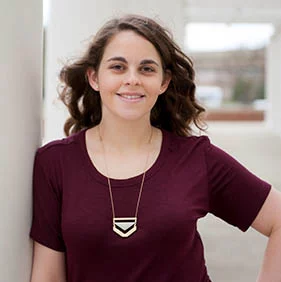Speak Different

When I was 18, I found my voice — literally.
Diagnosed with autism at a young age, I went without appropriate communication for years. Speech therapy helped me make minor progress, teaching me to repeat words and phrases. But I remained mostly non-speaking throughout childhood.
Medical professionals ignored my strengths and failed to see my intellectual ability, telling my family that I would need continuous supervision and to be taught with simplified instruction.
But later, I proved everyone wrong. First through pictures on the Functional Communication System app, and then letter by letter using the communication app Proloquo2Go on my iPad, I began to converse with others for the first time. After years of silently observing the world, I was ready to delve into it.
As I began to type more, I started to share my hopes and dreams for the future. One of those was to finish high school — something only 65 percent of students with disabilities do. It took me a little longer, but I graduated at age 21.
I enrolled at Ohio University after years of being told I would never go to college. The new environment proved to be overstimulating, and once again I fought to achieve my goals.
However, after I spent Rosh Hashanah alone, crying in my dorm, my mother called Hillel at Ohio University and asked for help on my behalf.
Lauren, the assistant director at the time, texted me and asked to grab coffee. As we talked about my Jewish experiences, life on campus and student life at Hillel, I began to feel at home. She connected me to other Jewish students, who offered to meet me at my dorm and walk with me to Hillel. I soon found myself there every Friday night, engaged in extensive discussions on my iPad, surrounded by my peers in a song-filled service.
I had some difficult moments during my freshman year, but as I became more efficient with typing and communicating, I grew more confident. With Hillel’s encouragement, I applied for and became a student engagement intern on campus last year.
Because I went most of my life without a means to communicate, I know the power of conversation to build relationships.
I saw this during one of my first coffee dates as an intern. I met with an unengaged student who was going through a difficult time and didn’t feel connected to Jewish life on campus. After listening to her, I drew from my own experiences, and connected her with Student Accessibility Services and the Women’s Center.
I also decided to take on an even greater challenge last August. Joining the Hillel International Student Cabinet would give me a chance to connect with a wider and more diverse group of students, where I could also share knowledge and improve issues regarding diversity and inclusion. Using technology, such as my iPad and Google Hangout, I’m able to actively participate in all of the Cabinet’s discussions.
I have even been the lead on one of the working groups, primarily focusing on Shabbat engagement. Through collaboration with my peers, we made a plan, which I presented to a Hillel International professional via Google Hangout — something I couldn’t have done a few years ago.
Looking back on my accomplishments since arriving in college, I am filled with a mix of pride and concern. While technology has given me a voice and allowed me to form real relationships — changing my life entirely — there are so many others who are still stuck in silence.
Statistically speaking, I shouldn’t be in college. But I’m thriving. Technology gave me the tools to speak and Hillel gave me a reason.
How to include students with disabilities is an ever-present challenge, one that picks at some of Judaism’s most sensitive issues. But in my case, the question for Hillel wasn’t whether to include me — only how.